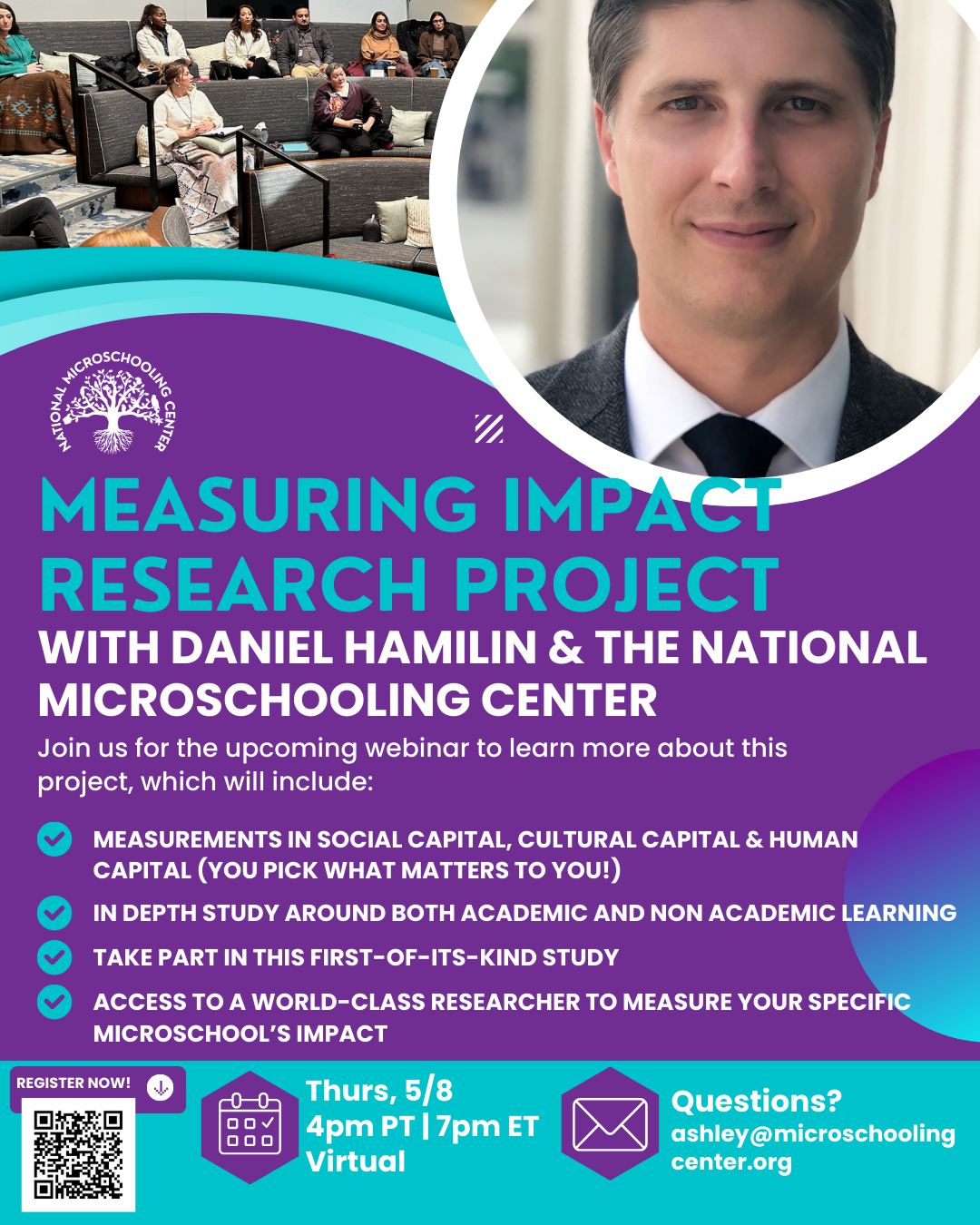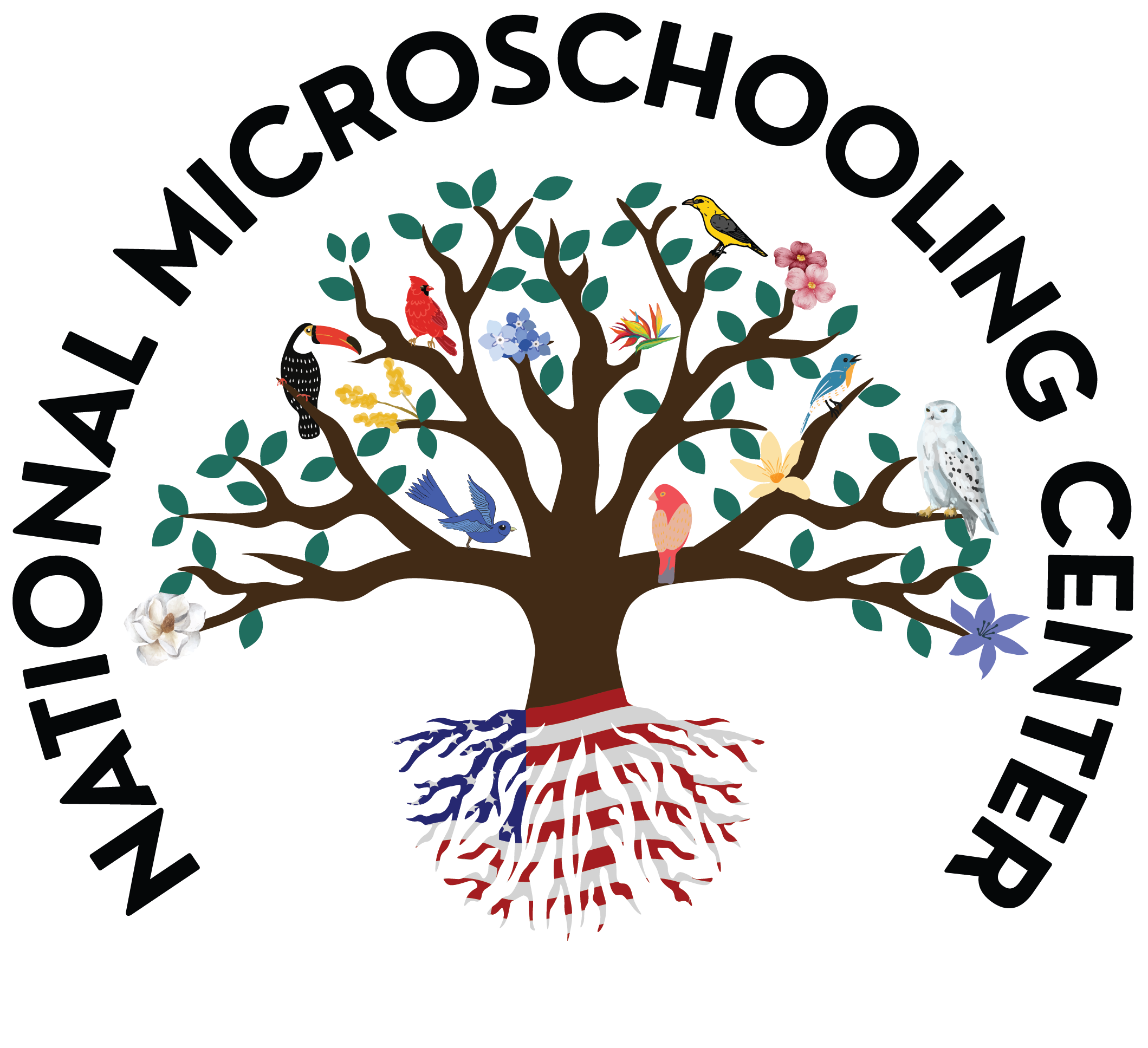
The National Microschooling Center is seeking your microschool’s participation in a research project during the 2025-2026 school year.
As the microschool sector grows, there is a pressing need to understand how microschools are performing. However, evaluating microschools is difficult. Diverse school goals, educational models, and student bodies mean that many traditional assessment tools may not adequately capture the innovative ways that microschools are benefiting students. To address this challenge, the National Microschooling Center is sponsoring a large research project for the 2025–2026 school year that aims to measure outcomes that are reflective of the missions of microschools. By participating in this research project, you as a microschool operator will be better equipped to demonstrate the value of your school, highlight its strengths, and identify current practices in need of refinement.
Research Projects
As a microschool operator, you may choose to participate in one or more of three research projects. External evaluator, Daniel Hamlin of the University of Oklahoma, will handle all research activities. Your responsibilities as an operator participating in the study include administering assessments, sharing contact information for survey distribution, and helping ensure strong participation among families and students. No individual school, student, or person participating in the study will be identified in our sector-wide research reports.
Project I. Academic Growth using i-Ready Assessments. Participating schools will administer i-Ready assessments in math and ELA three times (early fall, midyear, and late spring). The data will allow for a comparison of student academic growth against national norms, adjusting for student background characteristics. Each participating school will receive both a confidential individual school report and a sector-wide summary of the results at the close of the study.
Project II. Parent and Caregiver Survey. A midyear and end-of-year survey will ask parents to reflect on their child’s school experiences with an emphasis on social, cultural, and human capital development. The surveys are designed to be brief (about 10 minutes), accessible, and actionable. Each participating school will receive both a confidential individual school report and a sector-wide summary of the results.
Project III. Student Survey on SEL and Climate. Students in grades 4–12 will take two surveys exploring their perceptions of socioemotional development, school climate, peer relationships, and learning experiences. By conducting a survey at the start and end of the year, the research team aims to understand how microschool student experiences improve over time. Each participating school will receive both a confidential individual school report and a sector-wide summary of the results.
Next Steps
We welcome your participation in all three projects. If you are interested in participating, please
1. Review the Center's information session webinar here.
NOTE: You will need the password to watch the video: q71?g@qI
2. Complete the interest form you can access here.
We will contact you in June to begin a short onboarding process that includes a brief microschool operator survey. As a participant, you will also have opportunities to provide input on survey design prior to data collection..
For more information, email Daniel_Hamlin@ou.edu.

New Report: Measuring Impact in Microschools
Download this new White Paper here.
.png)
Innovative Measures of Microschool Impact Contest
What are the original and innovative ways you like to demonstrate your microschool’s impact? The ones rooted in your mission and in the reasons you...

.jpg)